nb ny times 4 hours behind utc
Session 1
Plenary 1, University Leadership for the Decade of Action
03:00 – 04:00 UTCThe session will showcase innovative approaches that universities in the Asia/Pacific region are implementing to increase their societal value and impact on the SDGs, as well as the challenges and opportunities to accelerate these actions and make them part of a new “business-as-usual” for universities. The session is partially in response to the challenge made by President Mike Crowe of Arizona State University at a recent event of the UN Higher Education Sustainability Initiative, that universities need to change the way they operate and be more connected to the community to have real impact.Speakers:- John Thwaites, Chair, Monash Sustainable Development Institute (Moderator)
- Michael Crow, President, Arizona State University
- Dawn Freshwater, Vice-Chancellor, University of Auckland
- Kit Poon, Professor, School of Public Policy and Management, Tsinghua University
Parallel 1, 04:00 – 06:00 UTC- 1A: Nature Based Solutions to Climate Change
AND
Sustainable Land Use Planning - 1B : Interdisciplinary Approaches to Educate for Sustainable Development
Session 2
Plenary 2, 07:00 – 08:00 UTCProgram to be announced shortlyParallel 2, 08:00 – 10:00 UTC- 2A: Food Production, Waste Management and the Circular Economy
- 2B: Climate Change Adaptation and Disaster Risk Reduction for Cities
- 2C: Indigenous approaches to the Sustainable Development Goals
- 2D: Children, Youth and the SDGs
Session 3
Plenary 3, Multilateral Financing of the SDGs: African & Asian Experiences
12:00 – 13:00 UTC“The Sustainable Development Goals (SDGs) call for major societal transformations that will require significant fiscal outlays as well as private investments. The fiscal outlays cover public investments, the public provision of social services, and social protection for vulnerable populations.” SDG Costing & Finance For LIDCS (SDSN 2019)This session will showcase organizations that provide multilateral financing of the SDGs on the continents of both Africa and Asia. These organizations provide solutions to development challenges and support in the acceleration of the achievement of the Sustainable Development Goals through financing and deployment of targeted interventions. The session will also be an opportunity to mobilize efforts through cross-cutting strategies and strong partnerships.Speakers to be announced shortlyParallel 3, 13:00 – 15:00 UTC- 3A: Sustainable Land Use Planning
- 3B: Sustainable Blue Growth: Shipping and Ports
- 3C: Interdisciplinary Approaches to Educate for Sustainable Development
- 3D: Nature Based Solutions to Climate Change
- 3E: ICT Standards for the Sustainable Development Goals
- 3F: Safe, Affordable, and Inclusive Transport under the SDGs
Session 4
Plenary 4, 16:00 – 17:00 UTCKeynote Address: Dr. Tao Zhang, Deputy Managing Director, IMFParallel 4, 17:00 – 19:00 UTC- 4A: Multidisciplinary Energy Education for Societal Well-being
AND
Sustainable Land Use Planning - 4B: Interdisciplinary Approaches to Educate for Sustainable Development
- 4A: Multidisciplinary Energy Education for Societal Well-being
Session 5
Plenary 5, Pathways for Progress in Climate Change Education in the US20:00 – 21:00 UTCThis panel will reflect on the treatment of Climate Change Education in the U.S. Education system. It will look at both non-formal and formal pathways to provide life-long learning opportunities to learners. The panel will provide a critical perspective on the educational gaps so far and will discuss the types of interventions needed to fill those gaps. More specifically, the panel will investigate how do children learn about the environment? What kind of support can the education systems (formal and non-formal) provide to strengthen student learning? Finally, the panel will discuss, how can communities and informal networks contribute towards climate change education? The panel will look at key education policies in the U.S. context and suggest concrete ways in which Climate Change Education can be made more effective in imparting knowledge as well as changing behaviors.- Radhika Iyengar (Moderator), Education Sector Director, Center for Sustainable Development, The Earth Institute, Columbia University
- Christina Kwauk (Moderator), Fellow, Center for Universal Education, the Brookings Institution
- Karen Cowe, CEO, Ten Strands
- Frank Niepold, Climate Education Coordinator, NOAA Climate Program Office
- Shakira Provasoli, K–5 Environmental Science Teacher, New York City PS 333
- Isabelle Seckler, Second-year Student, Columbia University
- Iveta Silova, Director, Center for Advanced Studies in Global Education, Arizona State University
Parallel 5, 21:00 – 23:00 UTC- 5A: Interdisciplinary Approaches to Educate for Sustainable Development
- 5B: Children, Youth and the SDGs
- 5C: Climate Change Adaptation and Disaster Risk Reduction for Cities
- 5D: Avoiding ‘Day Zero’: Challenges and Opportunities for Securing Water for Megacities
DAY 2: SESSIONS 6-10
Session 6
Plenary 6, The Making of Happy Digital Cities & the Role of Blended Finance
03:00 – 04:00 UTCThis session will explore the building blocks of Happy Digital Cities and the role blended finance can play in realizing socially and environmentally inclusive investments that meet objectives of social, ecological, and spiritual harmony.The Sustainable Development Goals (SDG) Happiness Pyramid provides a point of reference for thriving cities. Based on the Balinese Tri Hita Karana (Three Ways to Happiness) philosophy, it organizes the SDGs in alignment around harmony of people, ecology, and the spiritual, promoting sound policies and governance to support resilient economies, thriving SMEs, sustainable infrastructure, and Happy Digital Cities.Blended finance incentivizes private investment to deliver social and physical infrastructure; it involves the strategic use of government funds to leverage private capital for SDGs. Indonesia has championed blended finance as an innovative financial mechanism both domestically and through global fora such as the G20. Indonesia launched its blended financing platform, SDGs Indonesia One, to support large-scale sustainable infrastructure projects through PT Sarana Multi Infrastruktur. If you’d like to continue this conversation after ICSD, we invite you to join the Tri Hita Karana Sustainable Development Cloud Forum on 19 – 20 November 2020.Speakers- Cherie Nursalim, Co Chair Southeast Asia, UN SDSN and Vice Chair International Chamber of Commerce (Moderator)
- Elkhonon Goldberg, Director of the Luria Neuroscience Institute and Clinical Professor in the Department of Neurology, New York University of School of Medicine
- Leslie Maasdorp, Vice-President and Chief Financial Officer, The New Development Bank
- Andre Uhl, Co-Founder, The Council on Extended Intelligence
- Kruskaia Sierra-Escalante, Senior Manager for Blended Finance, International Finance Corporation
Parallel 6, 04:00 – 06:00 UTC- 6A: Cross-cutting, just solutions towards the sustainability of the energy system
Session 7
Plenary 7, 07:00 – 08:00 UTCProgram to be announced shortlyParallel 7, 08:00 – 10:00 UTC- 7A: Universities Driving Collaborative Solutions for the Decade of Action
- 7B: Socio-technical Solutions for Water-Energy-Food Security Challenges
- 7C: Gender-based Innovations for Equitable SDG Outcomes
- 7D: Democratising Renewable Energy in the Global South
- 7E: Effective Industrial Policy to Achieve the SDGs
Session 8
Plenary 8, 12:00 – 13:00 UTCProgram to be announced shortlyParallel 8, 13:00 – 15:00 UTC- 8A: Children, Youth and the SDGs
AND
Turning Supply Chains into Engines to Support the SDGs - 8B: Climate Change Adaptation and Disaster Risk Reduction for Cities
- 8C: Cross-cutting, just solutions towards the sustainability of the energy system
- 8D: Universities Driving Collaborative Solutions for the Decade of Action
- 8E: Economics and Demography of Natural Disasters and Disease Outbreaks
- 8A: Children, Youth and the SDGs
Session 9
Plenary 9, 16:00 – 17:00 UTCKeynote & Kapuscinski Development Lecture: Ms. Inger Andersen, Executive Director, UN Environment Programme (UNEP)Parallel 9, 17:00 – 19:00 UTC- 9A: Food Production, Waste Management and the Circular Economy
- 9B: Indigenous approaches to the Sustainable Development Goals
- 9C: Children, Youth and the SDGs
- 9D: Gender-based Innovations for Equitable SDG Outcomes
Session 10
Plenary 10, 20:00 – 21:00 UTCProgram to be announced shortlyParallel 10, 21:00 – 23:00 UTC- 10A: Democratizing Renewable Energy in the Global South
AND
Effective Industrial Policy to Achieve the SDGs - 10B: Socio-technical Solutions for Water-Energy-Food Security Challenges
- 10C: Universities Driving Collaborative Solutions for the Decade of Action
- 10A: Democratizing Renewable Energy in the Global South
Side Events (to be announced)
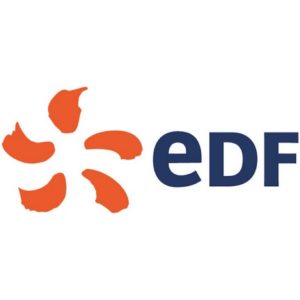
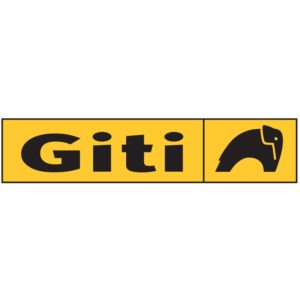
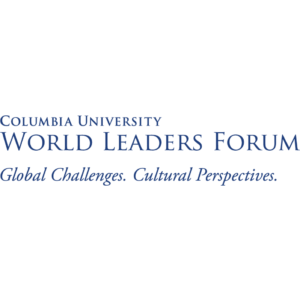
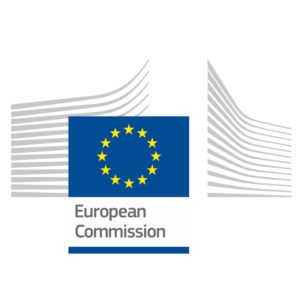
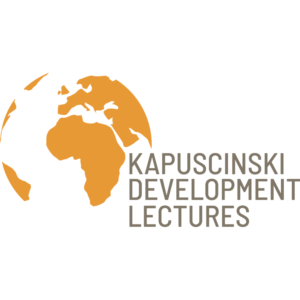
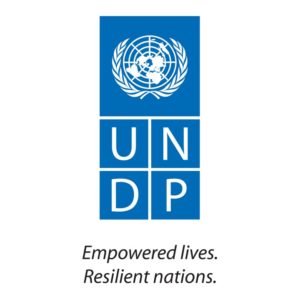
No comments:
Post a Comment